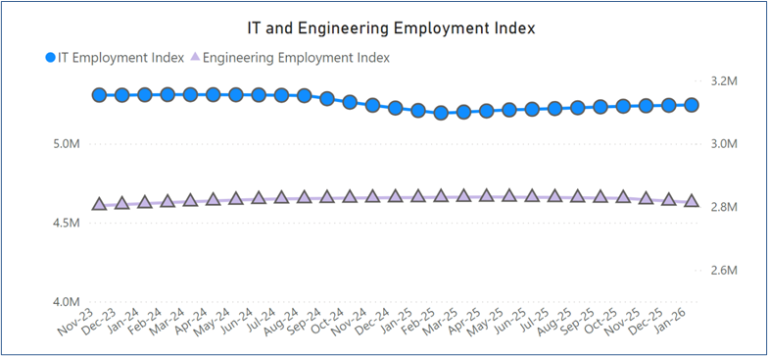The Families First Coronavirus Response Act (FFCRA), passed in March 2020, required small and midsized employers to provide paid employee leave for specific COVID-19-related reasons through Dec. 31, 2020. The FFCRA also provided tax credits for employers to cover the cost of the leave. The FFCRA employee leave requirements expired in December 2020; however, subsequent legislation extended the tax credits for employers that continued to offer FFCRA leave on a voluntary basis. The credits are currently in effect through Sept. 30, 2021. They are taken against employment taxes and are fully refundable and advanceable. The IRS has maintained guidance on the tax credits, including answers to frequently asked questions (FAQs), a fact sheet and a snapshot document. Note that the IRS FAQs have not been updated […]
-

Business Services
Our comprehensive business services are tailored to the specific needs of IT & Engineering Staffing firms.
-

Insights & Trends
Research tools, data and analytics to help you better understand the industry, the employment market and your firm’s performance
-

Education & Training
Research tools, data and analytics to help you better understand the industry, the employment market and your firm’s performance
-

Compliance
A selection of industry-tailored resources to help you build your business and minimize your risks
-

Collaborate
Take advantage of various opportunities to meet, interact, learn and share best practices with other TechServe members
-

REsources
Access our resources section for the latest news, blogs, case studies, webinars, infographics, and reports, all aimed at enhancing your knowledge and supporting your growth.





